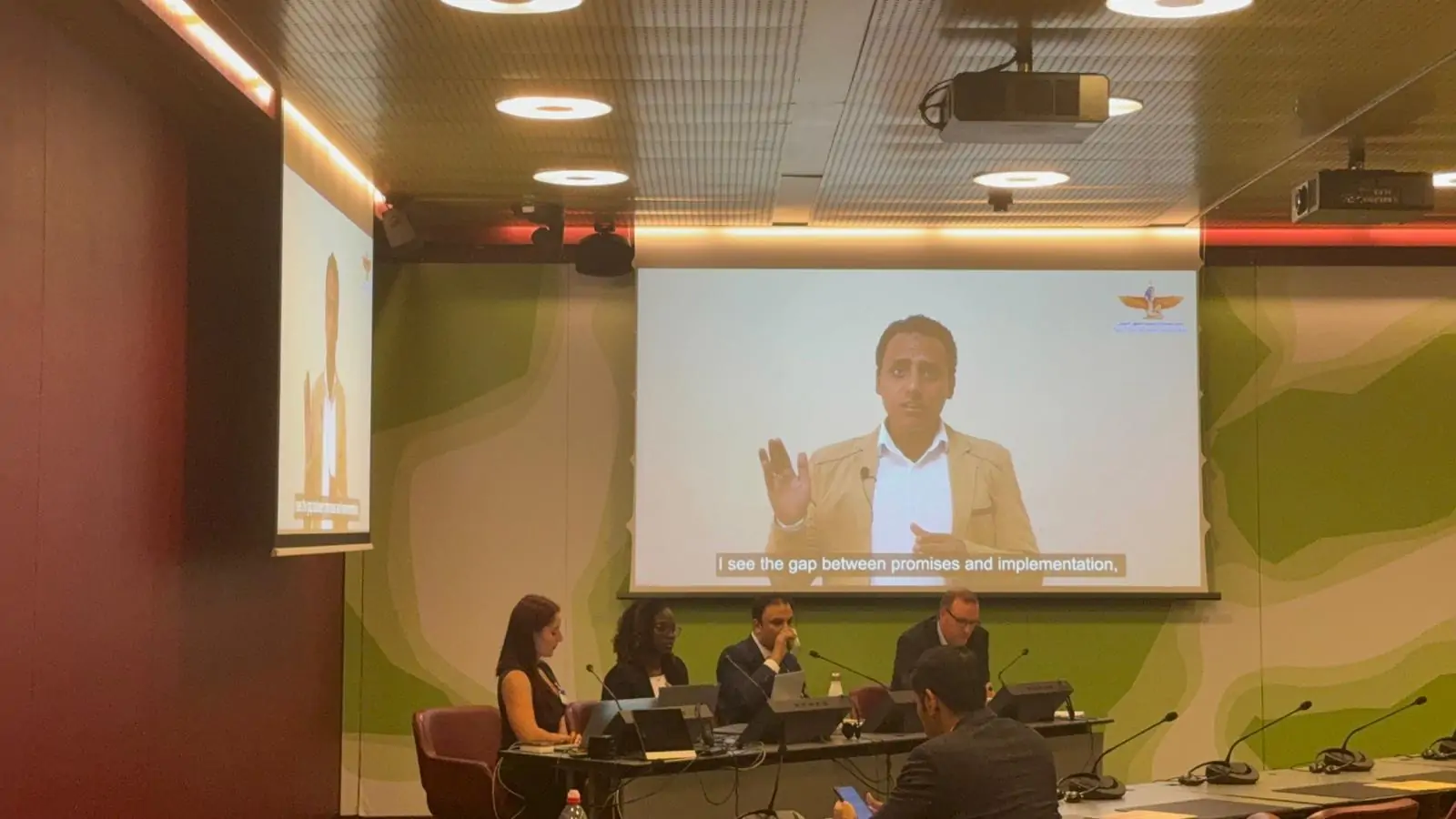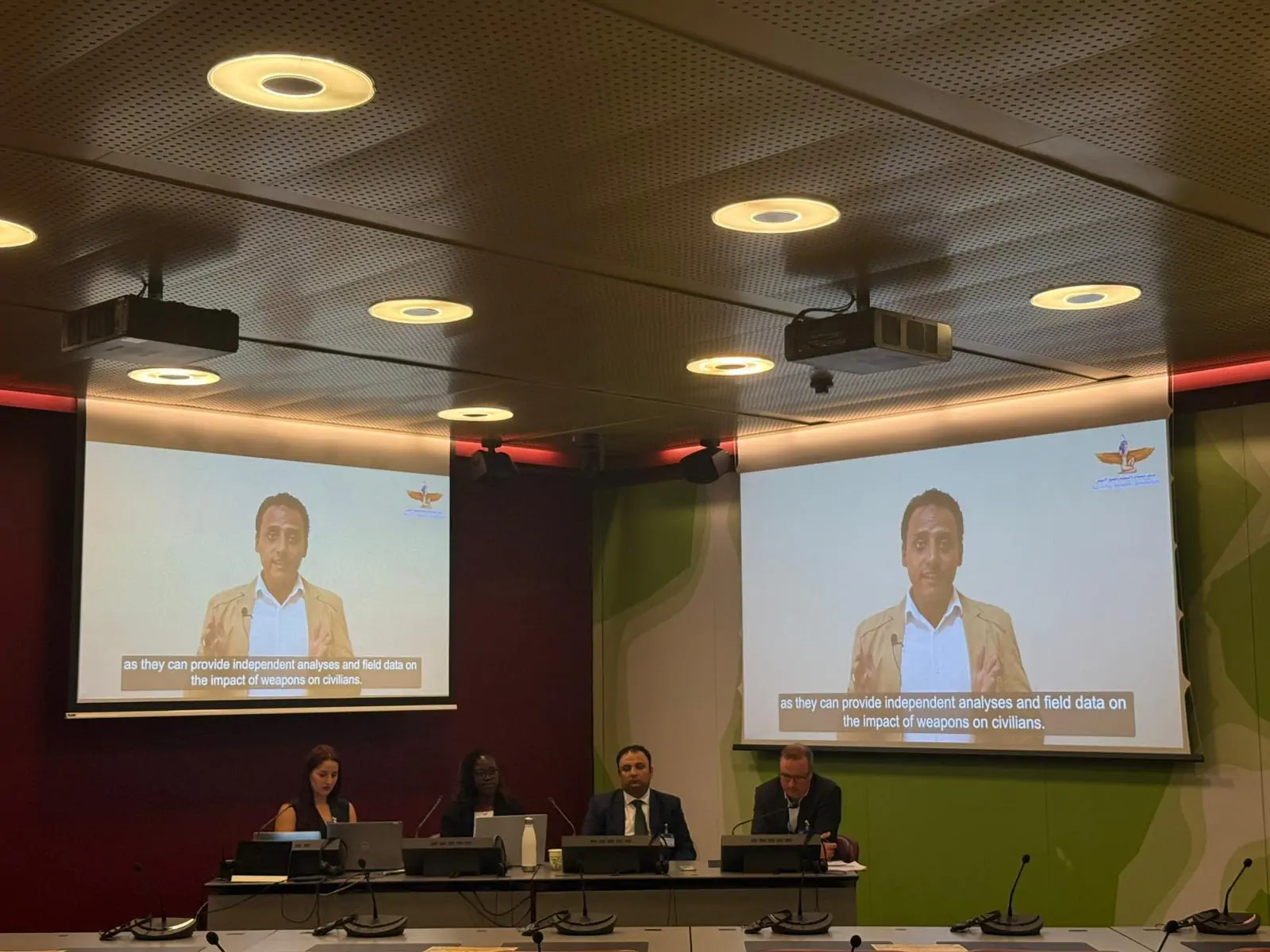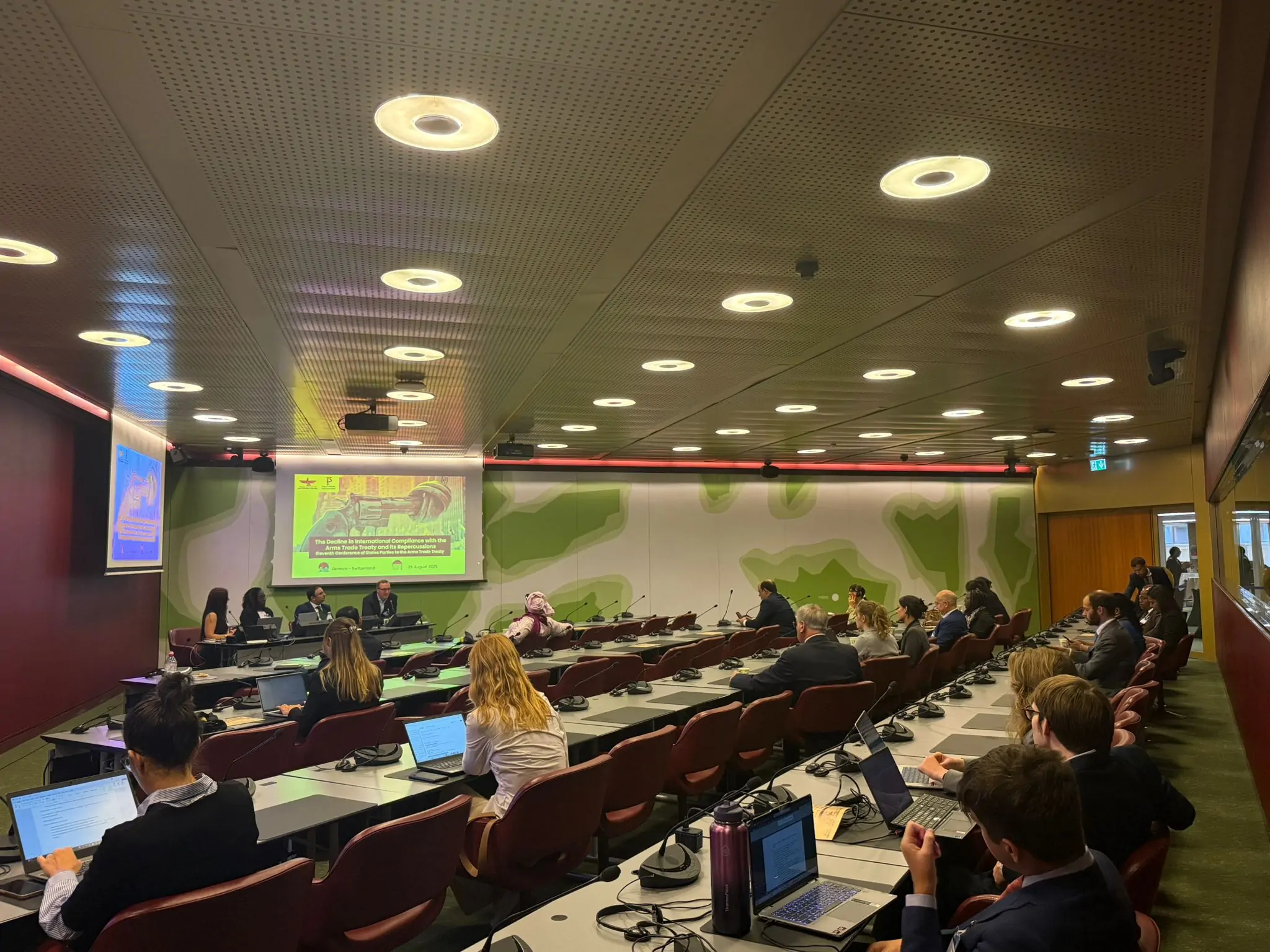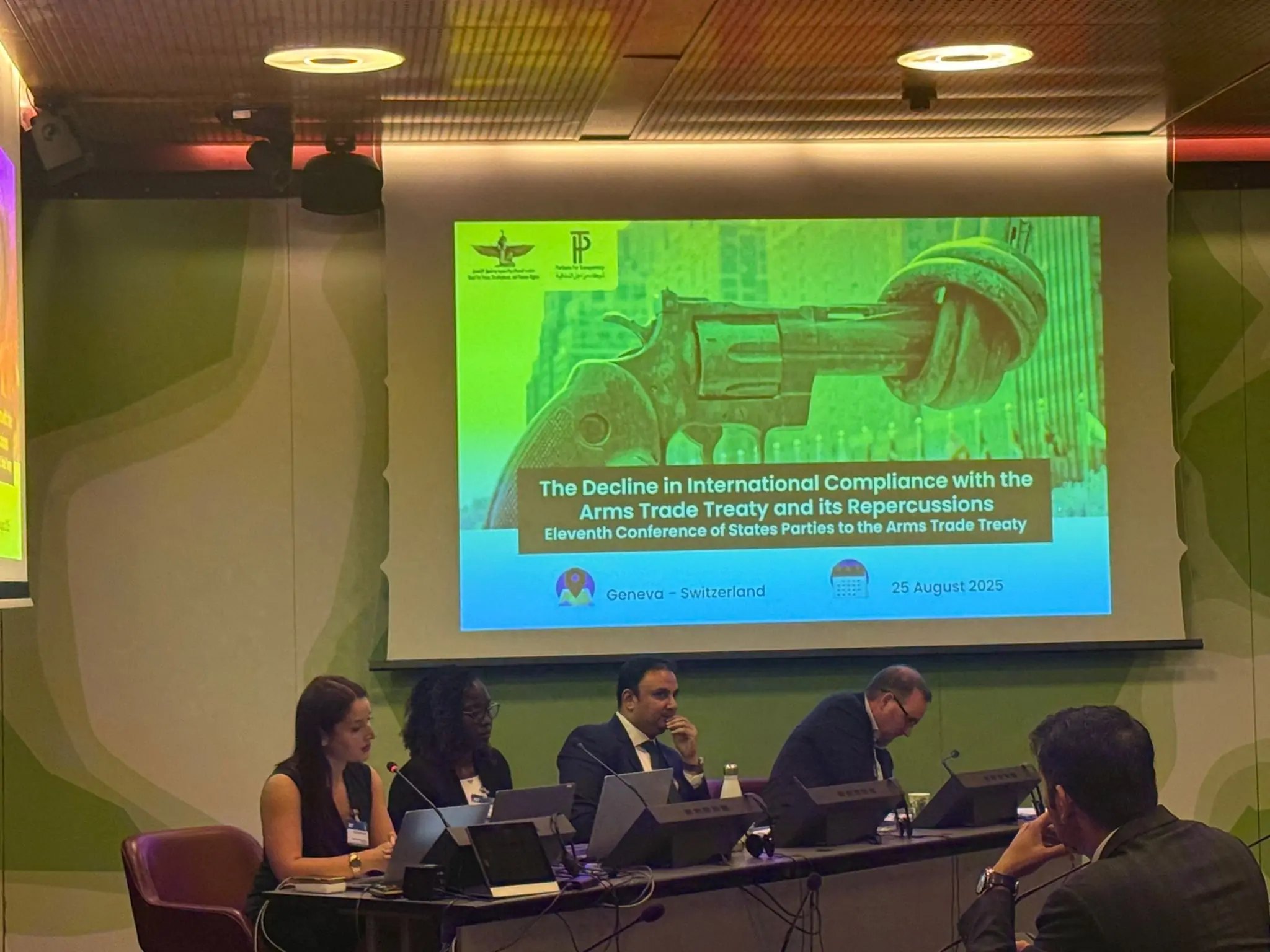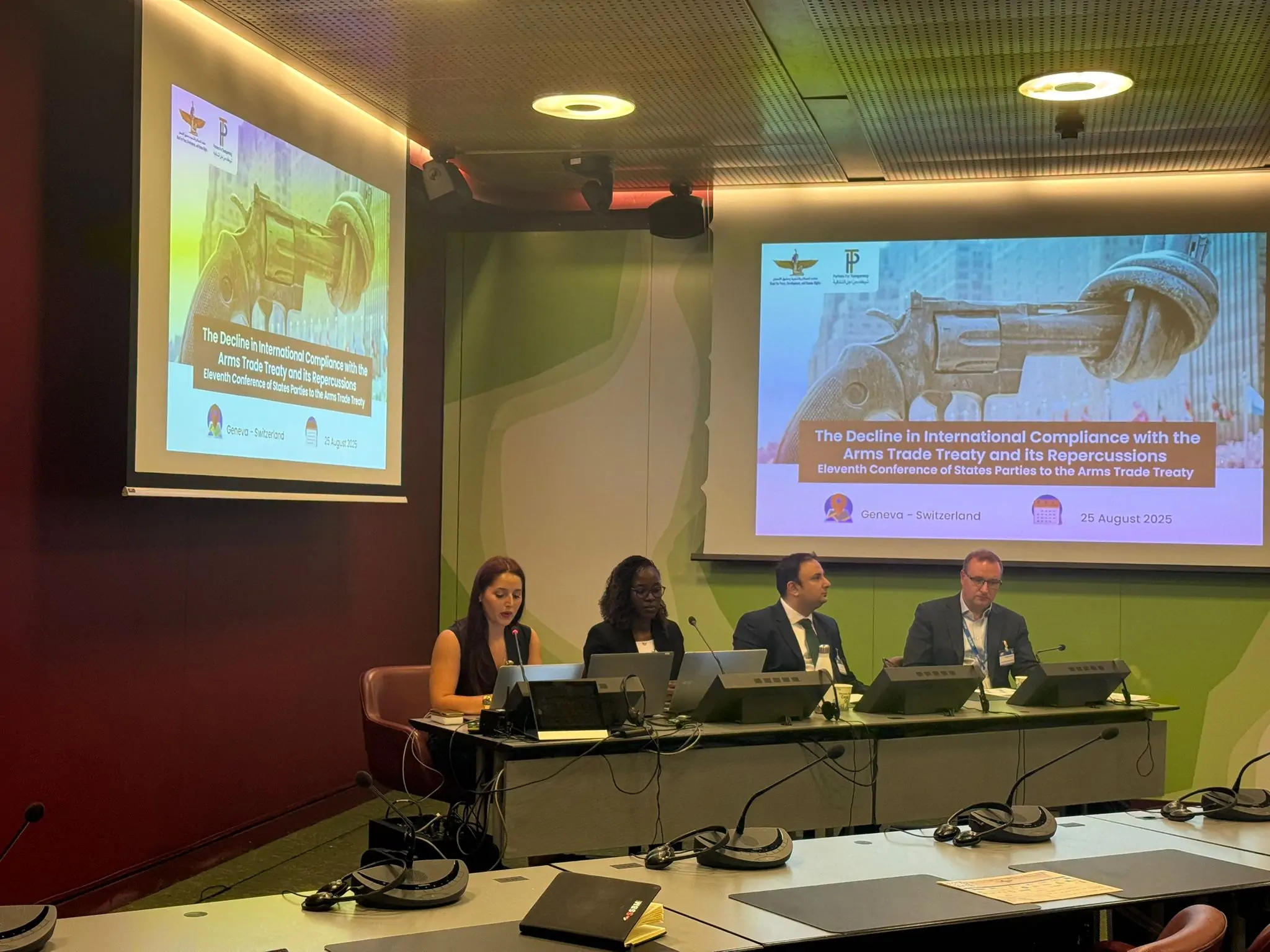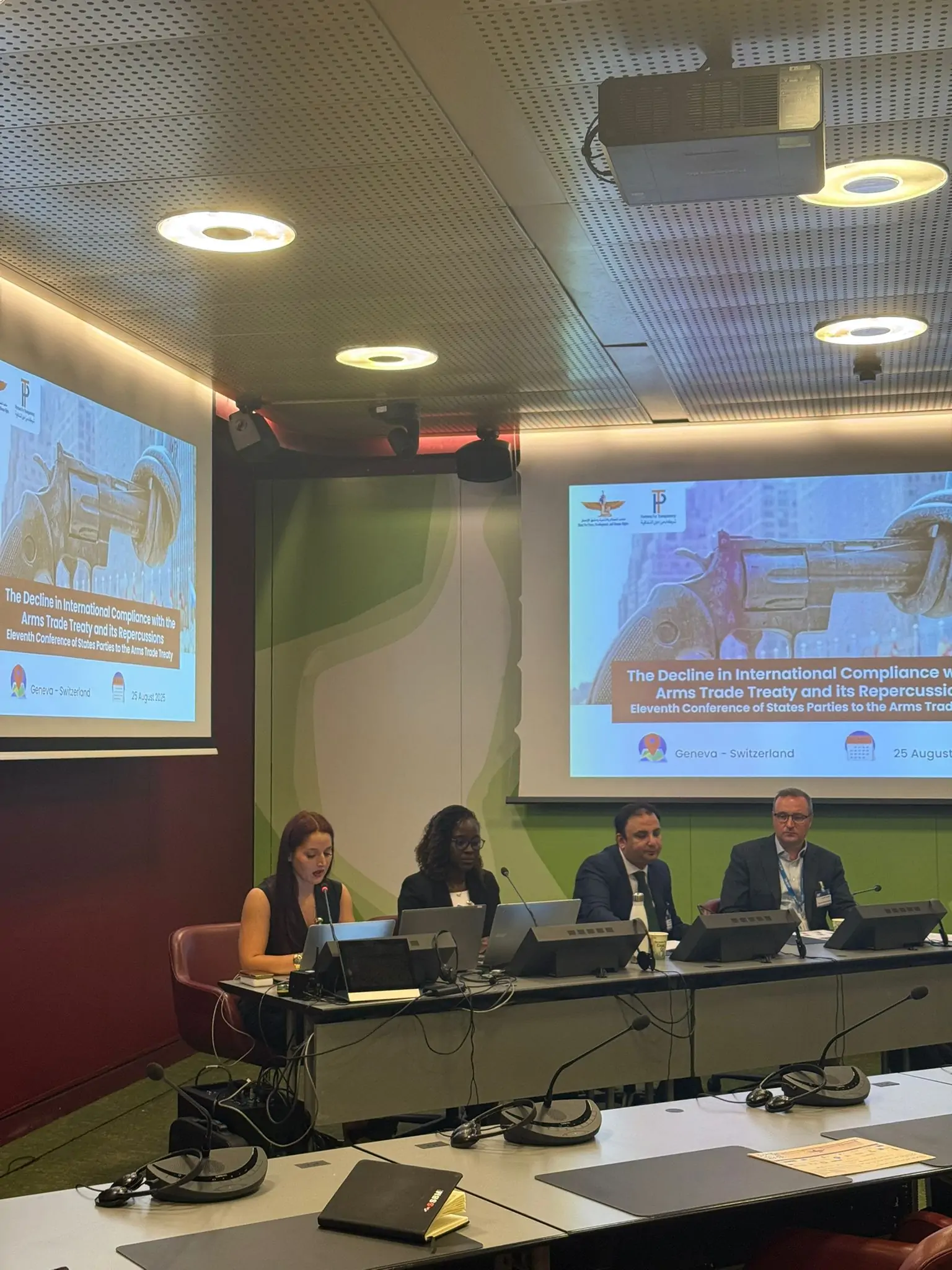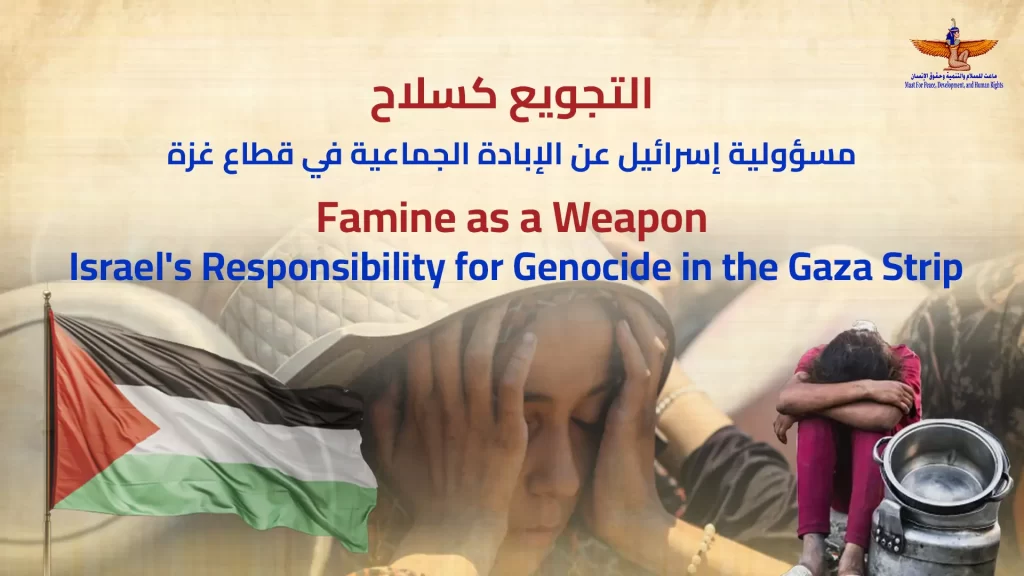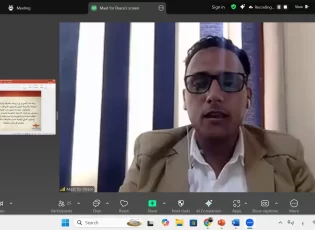Maat for Peace, Development, and Human Rights, in collaboration with "Partners for Transparency", organized a discussion panel titled "Decline in International Commitment to ATT and Its Implications" on the sidelines of Eleventh Conference of States Parties (CSP11) to the Arms Trade Treaty (ATT), held from August 25 to 29, 2025. The event witnessed wide participation from representatives of diplomatic missions and prominent experts in arms control and human rights.
The discussion included contributions from Fahd Ahmed, an advisor at the International Committee of the Red Cross; Simon Cleobury, head of the Arms Control and Disarmament Division at the Geneva Centre for Security Policy; Manoboni Grace, a human rights researcher; and Mohamed Mokhtar, director of International Humanitarian Law and Disarmament Unit at Maat. The conversation focused on the escalating challenges facing ATT, particularly regarding the non-compliance of some states with the core provisions regulating arms transfers, including Articles 6 and 7, which require states parties to implement strict measures to prevent the export of arms to parties that may use them to commit serious violations of international humanitarian law or international human rights law, as well as Article 11 concerning the combating of arms diversion. The discussion also addressed the noticeable decline in annual reporting rates stipulated in Article 13, which has adversely affected the level of transparency in the international arms trade.
In his remarks, Mohamed Mokhtar emphasized that ATT, while being a fundamental international tool aimed at regulating arms transfers and preventing them from falling into the wrong hands, faces significant challenges. This is particularly evident in the continued supply of arms to conflict parties in various regions, despite serious violations of international law, notably the provision of weapons and equipment to Israeli occupying forces used in killing Palestinian civilians. Mokhtar stressed that the decline in transparency in reporting arms transfers poses a direct threat to ATT credibility and effectiveness, calling for turning words into actions through practical measures, including providing technical and legal support to states, engaging civil society organizations, and prioritizing the voices of those affected by armed violence.
Fahd Ahmed noted that ATT universality remains the foremost challenge to its effectiveness, explaining that mere ratification is insufficient to ensure compliance; it requires genuine political will, especially in the Middle East, which faces complex challenges. He added that the lack of transparency exacerbates this crisis, as some states hesitate to submit their periodic reports, particularly during armed conflicts, despite transparency being a crucial element in building international trust, similar to practices in nuclear weapons issues.
Simon Cleobury affirmed that enhancing international awareness of ATT is an urgent need, indicating that the Geneva Centre for Security Policy offers specialized training programs to support this goal, including a free online course titled "Introduction to ATT," with plans to launch a French version soon. He also proposed the creation of a unified dashboard to periodically monitor developments related to ATT, stressing that modern technology could be an effective tool for revitalizing ATT and enhancing its effectiveness in the coming years.
In this context, Manoboni Grace explained that the reporting process by states to ATT Secretariat is a fundamental pillar for achieving its goals and enhancing transparency. However, she warned of the alarming decline in compliance rates with this process, noting that twenty-five countries have yet to submit their initial reports, most of which are from African states experiencing armed conflicts. She added that the annual reporting rate has steadily declined from 87% in 2015 to only 61% in 2024, the lowest level since ATT came into force.
At the conclusion of the discussion panel, participants reached a set of recommendations, including the necessity of providing technical and legal support to countries facing difficulties in implementing ATT, particularly in conflict-affected areas, to enhance their ability to assess risks associated with arms transfers. They also called for workshops and consultative sessions with countries struggling with reporting challenges, especially in Africa, to understand the difficulties they face and provide tailored solutions. The importance of developing a long-term strategy for ATT was also emphasized, which should serve as a roadmap to guide the work of states parties toward achieving ATT's core objectives more effectively.
Finally, Maat affirmed that commitment to ATT should not be viewed merely as a legal obligation but as a humanitarian and moral responsibility aimed at protecting civilians and alleviating the suffering of people living under the burden of armed violence.
shortlink: https://maatpeace.org/en/?p=45379


